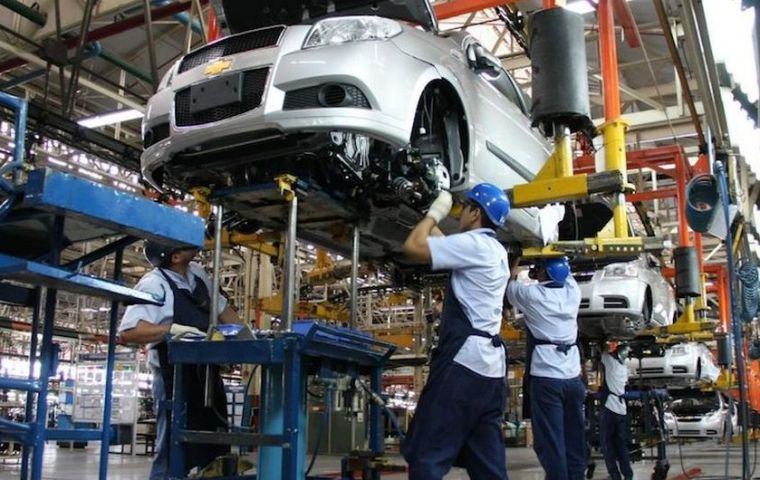MercoPress. South Atlantic News Agency
Argentina and Brazil sign auto industry increased integration agreement
 The agreement extends the system by which Brazil currently can sell US$ 1.5 worth of vehicles to Argentina for every US$1 it buys from Argentina auto industry
The agreement extends the system by which Brazil currently can sell US$ 1.5 worth of vehicles to Argentina for every US$1 it buys from Argentina auto industry Brazil and Argentina renewed their auto trade agreement on Friday, allowing increased Brazilian exports to its neighbor through 2029 but postponing free trade in motor vehicles between the countries for the next decade.
Argentina is the largest export market for the Brazilian auto industry, but sales have plummeted due to a recession in the Argentine economy. Sales in Brazil in recent months have begun to recover to 2014 levels.
Thursday’s agreement extends the so-called flex agreement by which Brazil currently can sell US$ 1.5 worth of vehicles and parts to Argentina for every $1 it buys from the Argentine car industry.
That ratio will now rise to US$ 1.70 in June 2020, when the new agreement begins, and keep climbing to US$ 3.0 in July 2028 before free trade begins a year later.
The new deal includes favorable terms for the export of hybrid and electric cars, buses and trucks, starting with a quota for 10,000 vehicles and rising by 3,000 a year over the next decade, trade officials said.
The extension was signed by Argentina’s Production Minister Dante Sica and Brazil’s Economy Minister Paulo Guedes, who said it established a predictable outlook for vehicle and car part companies that would attract new investment in the industry.
Both ministers denied that Argentina’s elections next month had led their governments to rush through a renewal of the car pact, which could run into trouble if the Peronist opposition wins.
The extension for 10 more years was welcomed by automakers in both countries, which face the prospect of heightened competition from Europe under the recently agreed trade accord between South America’s Mercosur bloc and the European Union.




Top Comments
Disclaimer & comment rules-

-

Read all commentsWouldn't it be fun to share crisis-after-crisis?
Sep 08th, 2019 - 12:01 pm 0https://www.otempo.com.br/image/contentid/policy:1.2232492:1567814222/CHARGE%20SUPER%20FC.JPG?f=3x2&q=0.6&w=620&$p$f$q$w=7060dfe
It's just like one beggar reassuring another that prosperity is just around the corner!
Sep 12th, 2019 - 10:03 am 0Commenting for this story is now closed.
If you have a Facebook account, become a fan and comment on our Facebook Page!